

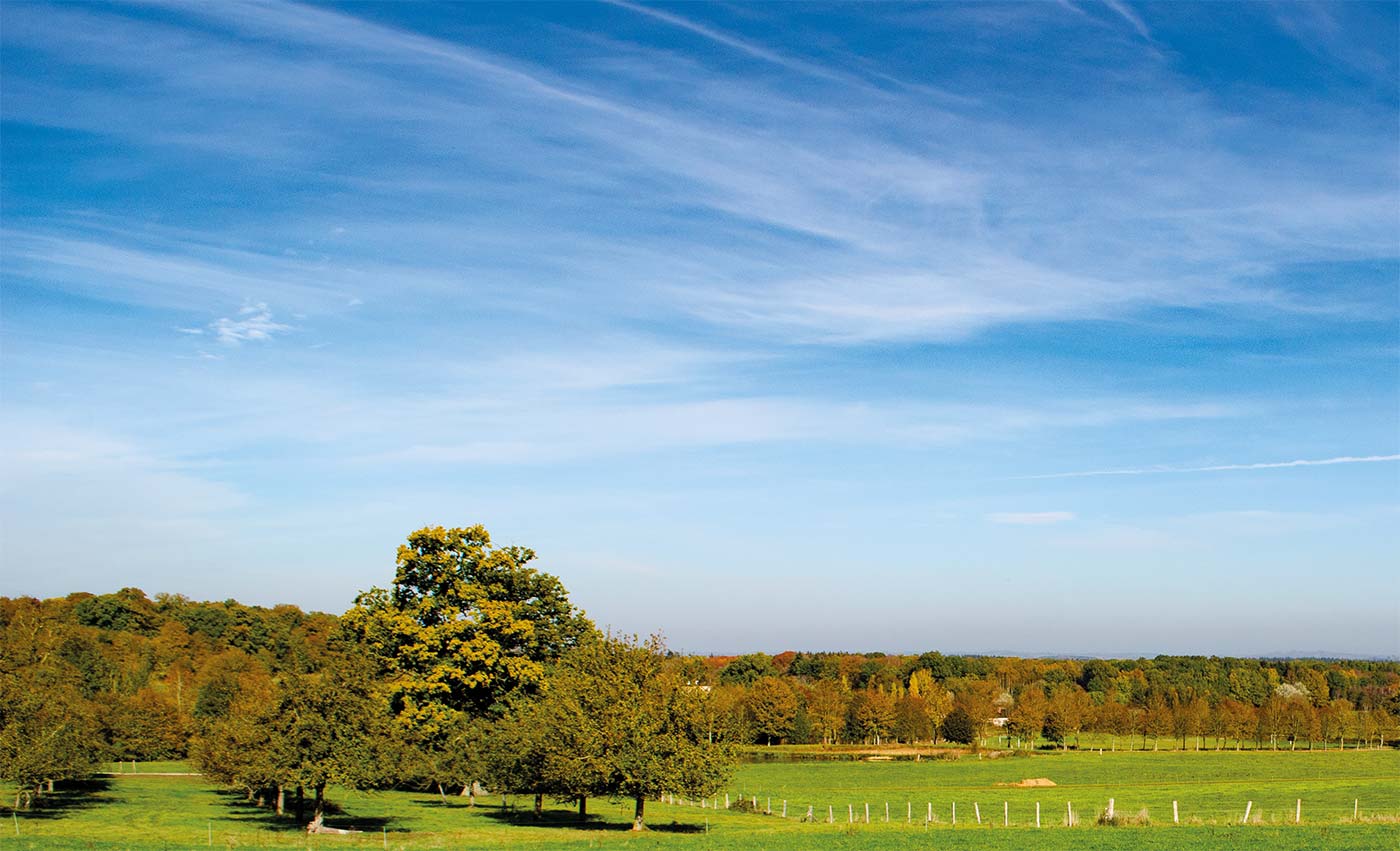
Born in 1988, its vocation was then to relaunch the production of farm cider in Haute-Normandie after years of dwindling orchard-planting and cider production in the region. Since 1990, the educational operation has served as a field of application for students and has earned a place for itself among the great cideries by joining the list of "Cuvées Prestiges-Cidres des Pays de Haute-Normandie".
Today, practicing entirely organic farming, Domaine de Merval works on a daily basis toward an autonomous and economical system which aims at the maximum of interactions that emphasize the "Human - Soil - Plant - Animal - Transformation" system.
A collective of 10 people work on the different workshops of the farm: The people who work on the farm are paid through our agricultural activities. Passionate about their vocation, they pass important skills on to high school students.
The Estate covers 120 hectares where permanent meadows, temporary multi-species meadows, grain fields, as well as haute-tige and basse-tige orchards.
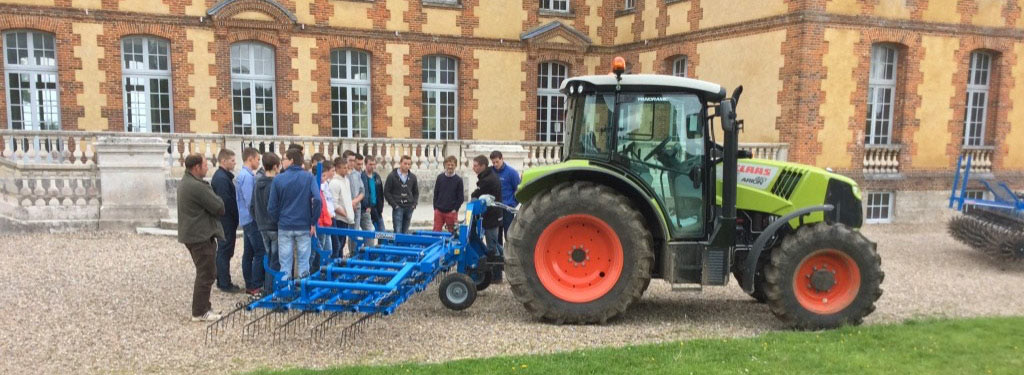
100 Norman dairy cows enhance our "all grass" system, the herd is in full pasture for nine months of the year.
We also cultivate meteils grains (combinations of cereals and protein crops) to supplement the animals as needed. Thus, we ensure maximum autonomy and traceability.
90% of the milk is processed into Coeurs de Neufchâtel AOP Bio Fermiers au Lait Cru (approximately 220,000 pieces / year). The other part of the milk is sold to the Biolait structure.
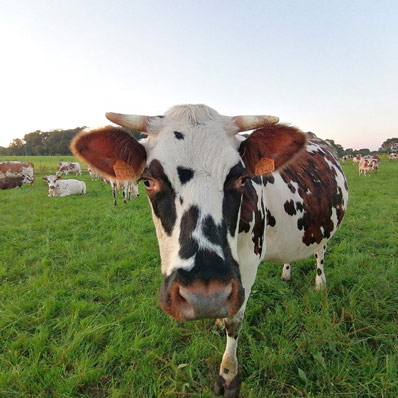
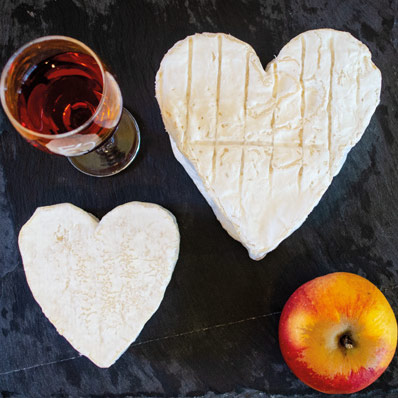
12 hectares of cider orchards to produce: apple juice, apple-strawberry, sparkling, sour, Cider and also two renowned AOCs: Pommeau de Normandie and Calvados.
The farm serves as technical and educational support for the school, which explains the presence of a conservatory orchard (more than 420 old varieties listed) and an educational flock of sheep (10 ewes).
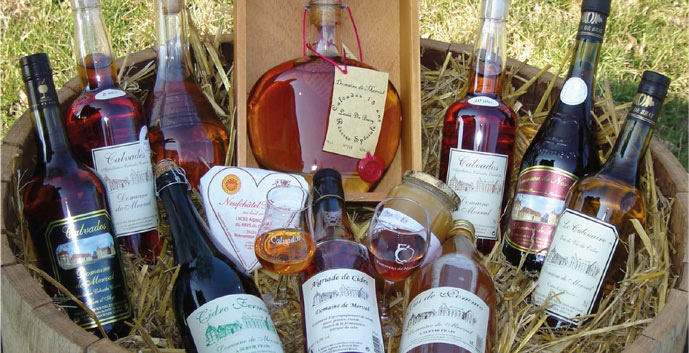
In 2021, the Merval Estate Association continued its pursuit to defend the recognition of local apple varieties, in the face of a withdrawal of public funding from the Normandy region. In support of its mission, it filed a report and request for continued funding, summarized by Mr. Juguet's comments above.
The Normandy Region's response is expected sometime in 2021. This would be a new step in the fight for the association created by a handful of local farmers in 1982. In 1989, when the first year of school commenced on the domaine, Fernand Bazerque, a retired teacher, began to collect varieties of apples in and around Bray country, which he set up in a small conservatory orchard on the school grounds, opposite the castle. When Fernand died, he left an exceptional collection of more than 400 old local varieties.
Once the high school was installed, the Merval Estate Association became less active, but reformed in 2018 to save the conservatory orchard, as public funds to cover the costs of the site ran out, meaning it is the school itself which must take care of it.
Today the conservatory orchard represents an exceptional heritage and an unprecedented genetic reservoir in Normandy. Our volunteers can be proud to support the home of 100 unique apple varieties out of the 9,600 listed by the National Research Institute for Agriculture, Food and the Environment (Inrae) in Europe.
Every year, around the end of September, the apple harvest begins. In 2020, the Domaine harvested 150,000 kilos of apples from 80 different varieties. The apples are collected, sorted by hand, and placed in a traditional a paquet press. The apples receive a light press, in order to extract only the most desirable juices.
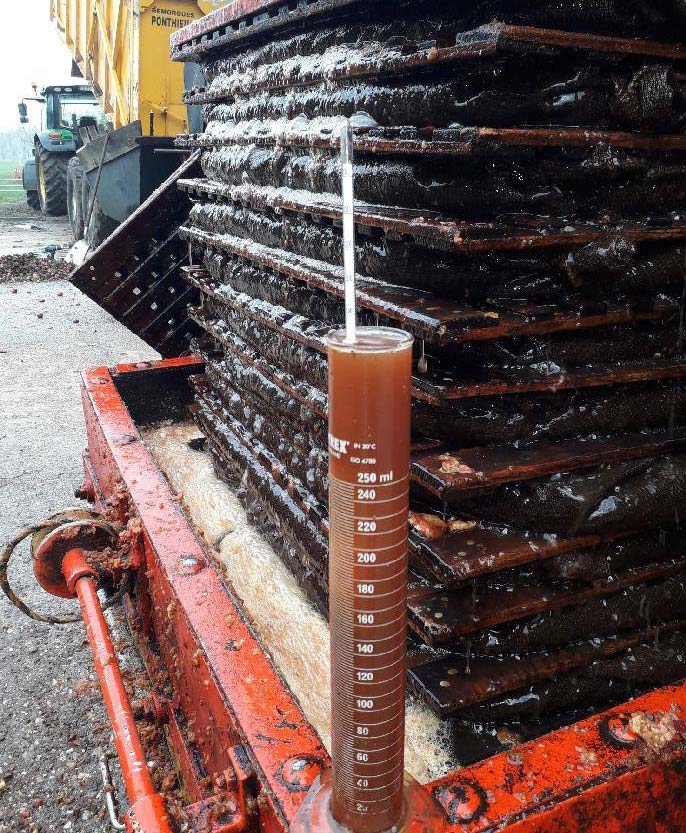
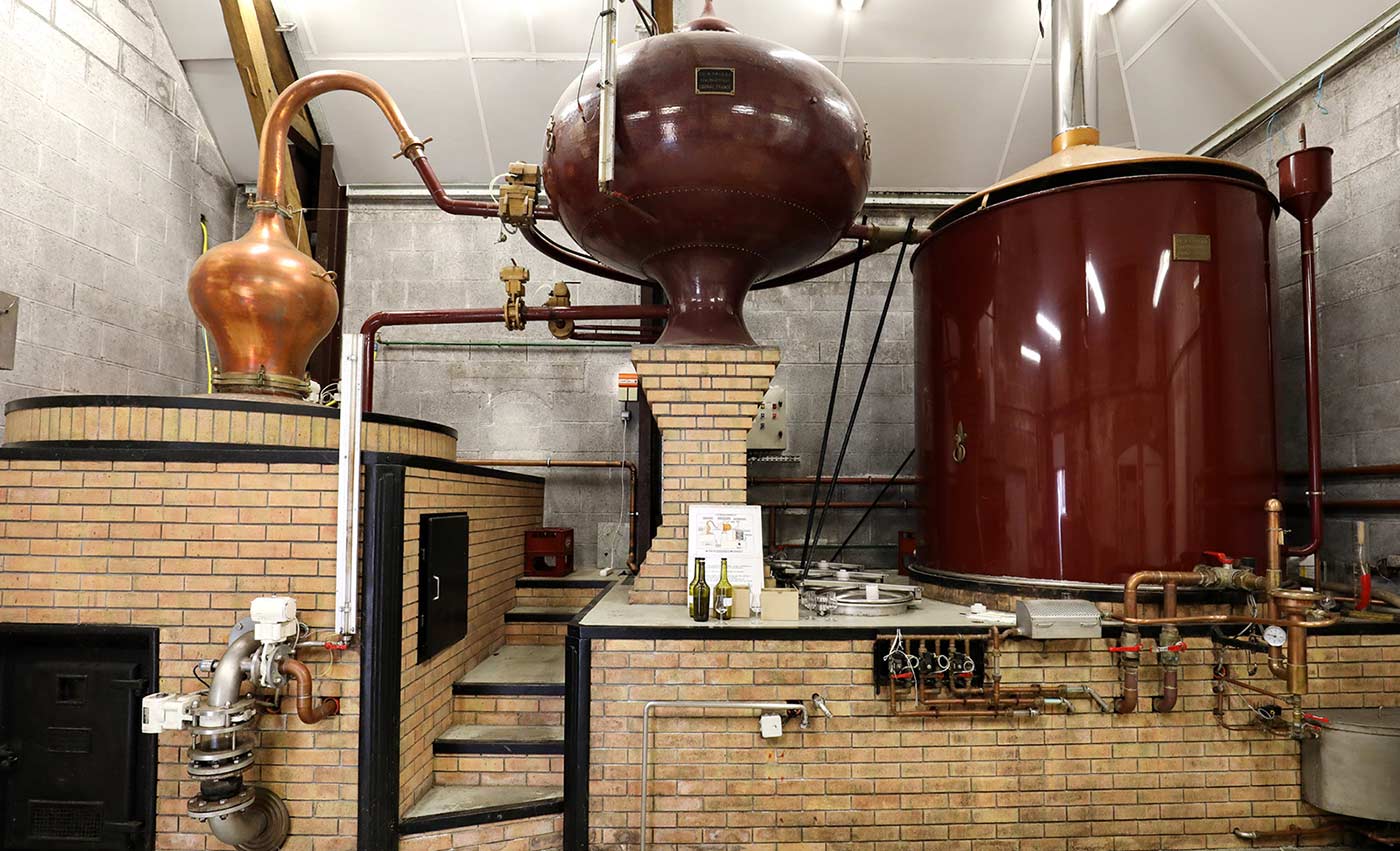
Unlike nearly all distillers within the Calvados AOC who use single continuous stills, Domaine de Merval employs a double distillation in a copper alembic. When the governing body of Calvados production began remaking the rules of the AOC in the late 1980s, Maitre d'Chai and headmaster at the Lycée, Francois Juguet, believed the new regulations would mirror the standards of AOC Pays d'Auge, where double distillation in copper alembics is required. Luckily, Juguet began his career in Cognac, where double-distillation in copper alembics is also required.
Thus, shortly after Mr. Juguet came to work at the school in 1995, the domaine purchased its Charentais still from an old distillery in the nearby town of Gournay-en-Bray. Juguet believes that his eau de vie benefits from the batch distillation process, gaining an abundantly aromatic profile.
The master distiller at Domaine de Merval is Francois Juguet. Mr. Juguet actually started his distilling career in Cognac in the 1980's and later translated his experience to Calvados after joining the Lycée in 1995. Since that time, he has focused his energy on creating a full-cycle agricultural product, from apple cultivation to the making of cider and finally, Calvados. Mr. Juguet's meticulous attention to detail and love for each one of his sleeping casks are qualities that he hopes to translate to his students learning at the cidricole.
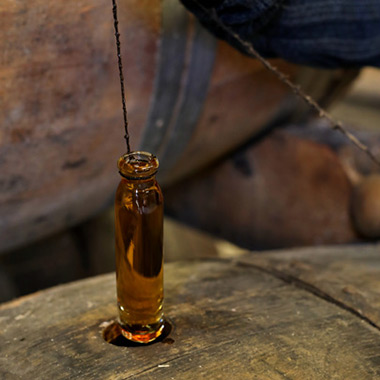
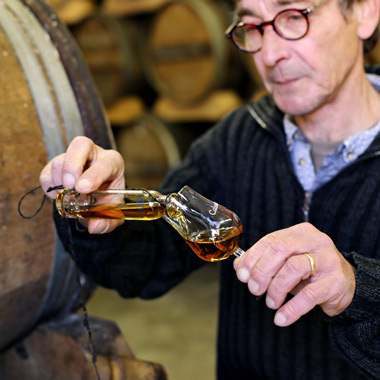
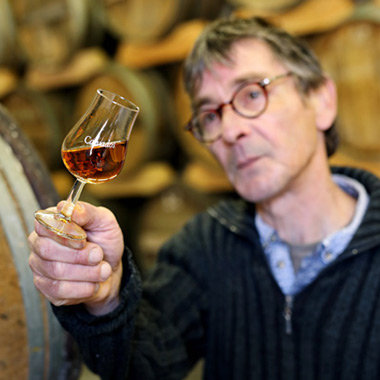
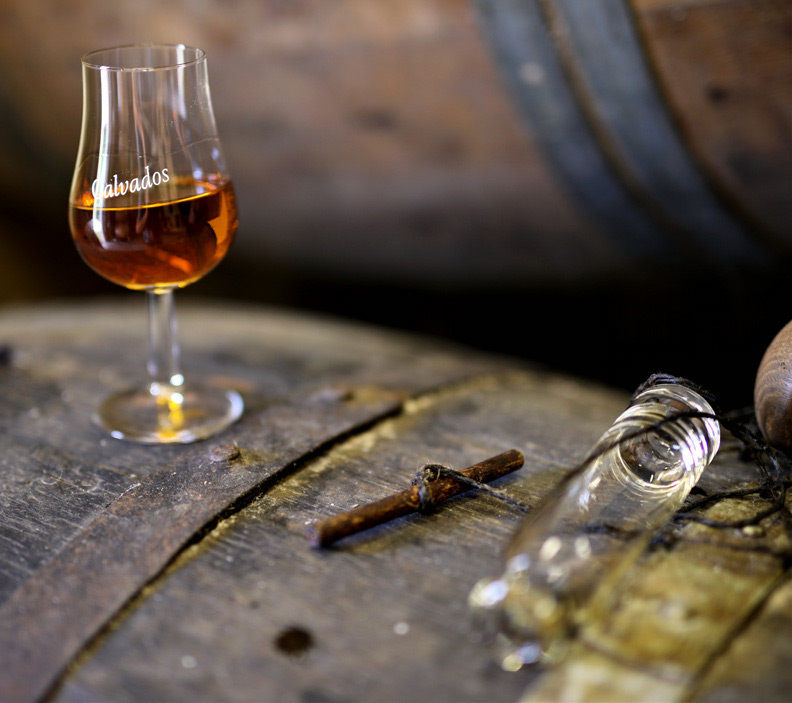
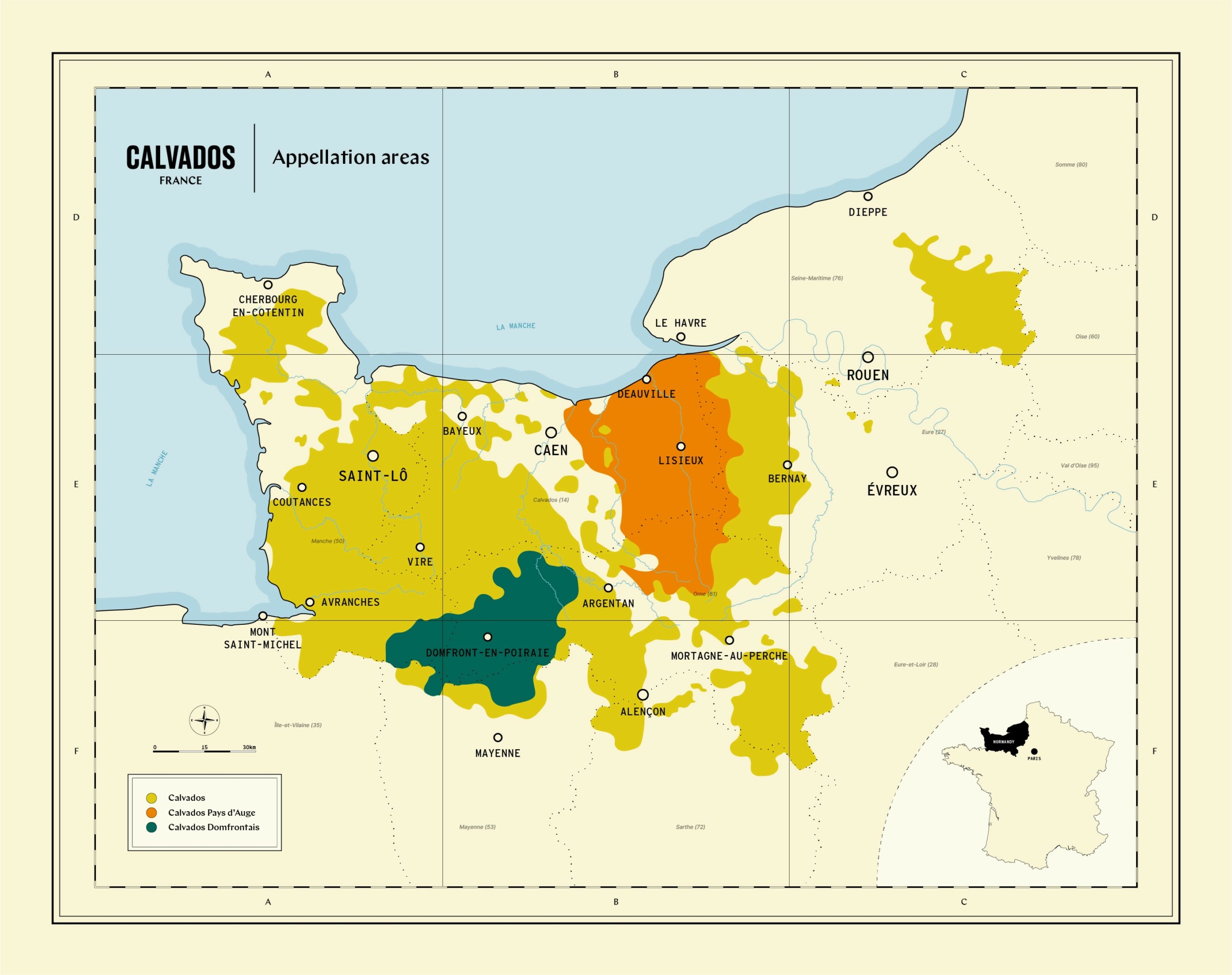
Domaine de Merval is in the Pays de Bray, within the Seine-Maritime department of Normandy, France. There are three distinct AOC designated regions that can produce Calvados in Normandy:
The Calvados AOC is broad, covering land areas that span across Normandy. Most orchards produce ciders and, to distill Calvados, employ single column stills that travel from town-to-town (but in some cases, distill twice in alembics or hybrid stills).
One of two smaller delineated regions located in the southeast of Normandy, the Calvados Domfrontais AOC requires the inclusion of pears.
Arguably the most esteemed of the three AOC, Calvados Pays d'Auge has several requirements, such as double-distillation in copper alembic stills.